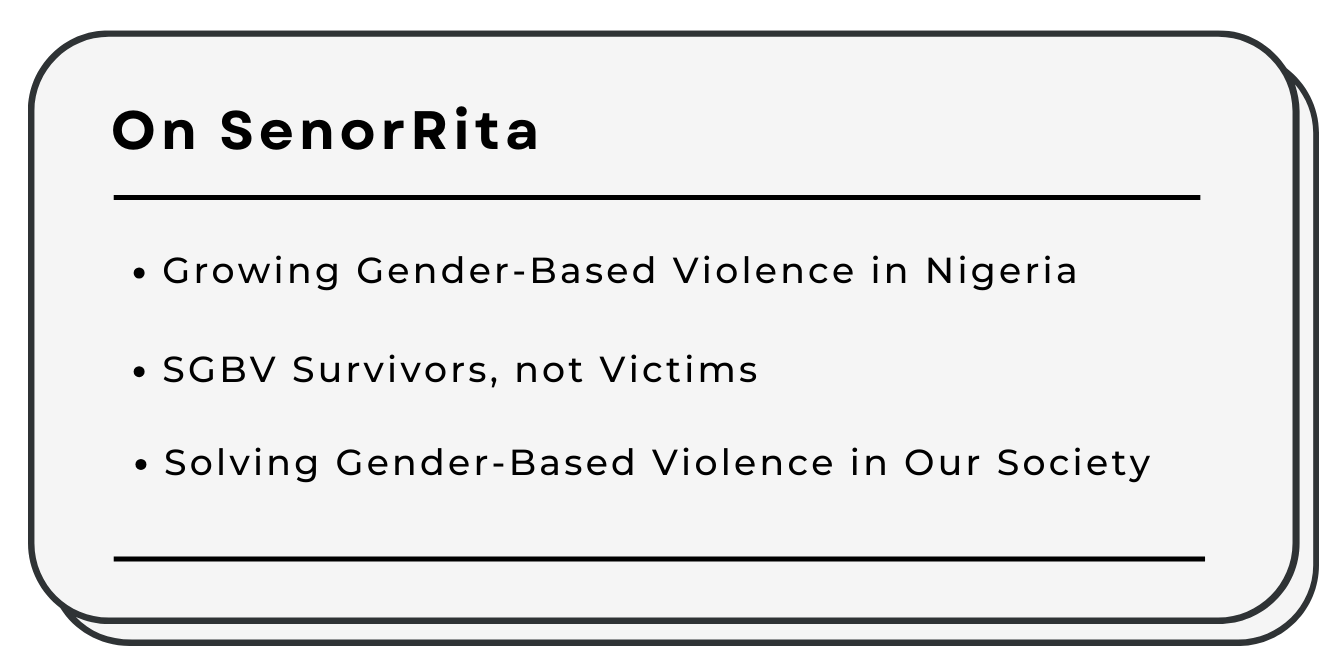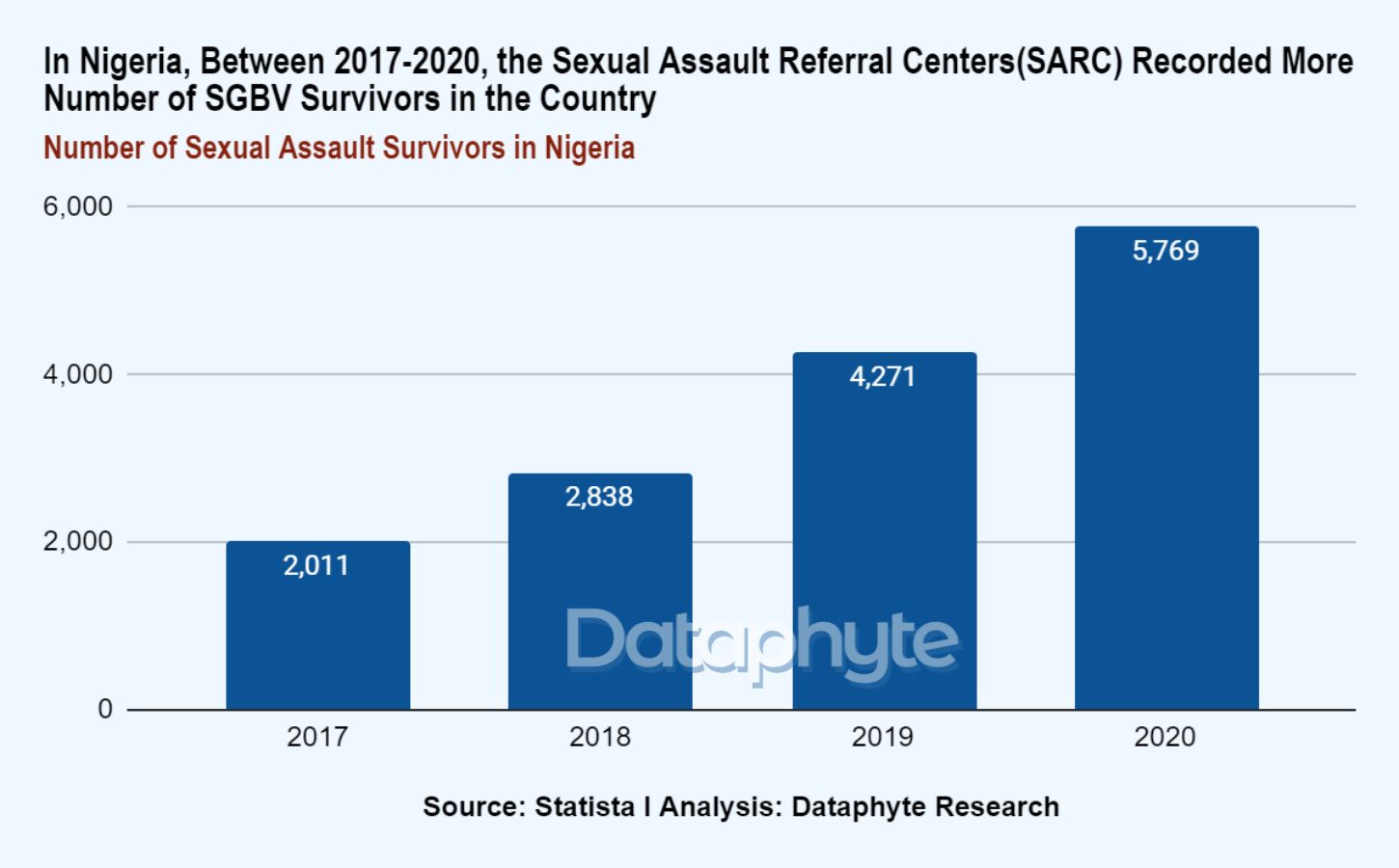Growing Gender-Based Violence in Nigeria
Nigeria has continued to record an increase in cases of Sexual and Gender-Based Violence (SGBV) in different states, according to a report.
Groups have raised concerns over the growing number of Sexual and Gender-Based Violence (SGBV) which affects both genders and may lead to long-term emotional distress and fatalities.
Gender-based violence(GBV) refers to any type of harm that is perpetrated against a person or group of people because of their factual or perceived sex, gender, sexual orientation or gender identity.
Also, it is an umbrella term for harmful acts of abuse perpetrated against a person’s will and rooted in a system of unequal power between women and men.
In some parts of Nigeria’s 36 states, findings have shown that GBV cases have recurred in recent years.
For instance, in the Northern part of Nigeria, the Salama Sexual Assault Referral Centre (SARC) in Kafanchan, Kaduna State, recorded 3,977 cases of Sexual and Gender-Based Violence (SGBV) cases since its inception in 2019.
Also, Lagos State recorded 24,009 cases of gender-based violence in the last 5 years. The cases include sexual, physical and psychological abuses, and were reported in all the 20 Local Government Areas of Lagos State between January 2019 and December 2023.
SGBV Survivors, not Victims
Referring to people who experience some form of SGBV as victims may inadvertently add to the violence of victimisation. A departure from this norm is to refer to people who have experienced this violence as survivors.
Data shows that between 2017-2020, cases of Sexual Gender-Based Violence (SGBV) received by the Sexual Assault Referral Centers (SARC) increased in Nigeria.
Meanwhile, sexual violence is a form of Gender-Based Violence (GBV), which involves any sexual act, unwanted sexual comments, advances or acts directed against a person's sexuality through coercion, threats, deception and cultural expectations by any person regardless of their relationship to the victim, in any setting.
Some prevailing socio-economic drivers of SGBV include poverty, misinterpretation of religious beliefs, deeply entrenched patriarchal ideas and beliefs, poor response mechanisms, and delays in judicial processes occasioned by technicalities and evidentiary rules.
The United Nations High Commissioner for Refugees (UNHCR) opined that the majority of victims and survivors of SGBV are females while the males can also be harmed by SGBV.
While the number of GBV is on the rise, in Nigeria, the number of sexual assault survivors recorded by the Sexual Assault Referral Centers(SARC) increased in the past victims of sexual assault.
For instance, in 2017 there were 2,011 complaints received across all centers. In 2018, the number of cases increased to 2,838.
Also, in 2019, the total number of recorded survivors was 4,271 and it increased to 5,769 in 2020.
Solving Gender-Based Violence in Our Society
Towards having a progressive society, a Sida publication recommended ways to resolve Gender-Based Violence in our society.
It recommended there is a need to increase gender equality. GBV prevention strategies are linked to efforts to increase gender equality. Also, rather than disconnecting and treating GBV as a separate and isolated problem, it has to be situated in the context of gender inequalities.
Advocacy for increased women's economic empowerment will enhance women’s bargaining power and ability to leave abusive relationships. This includes strengthening women’s entrepreneurship and employment opportunities, improving women’s access to land and property rights, promoting equal sharing of unpaid care work between women and men and encouraging universal access to quality education.
Also, the ability to shift focus from seeing women and other groups exposed to gender-based violence as victims, instead they should be referred to as survivors, actors and agents of change with a strong focus on women and girls’ empowerment and agency.
Thanks for reading this edition of SenorRita. It was written by Kafilat Taiwo and edited by Oluseyi Olufemi.





